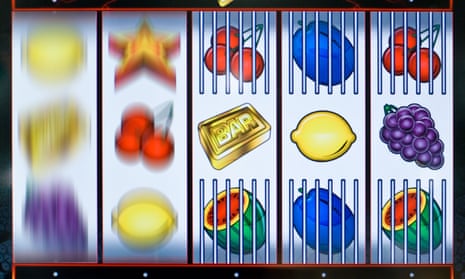Jo O’Meara, a former member of the 90s pop group S Club 7, has shared how she became addicted to gambling on fruit machines as a “form of escape” from the pressures of touring, before realising she had to quit because it made her antisocial.
O’Meara said she first went to bingo halls with family at about 18, where she began playing on fruit machines. Although she did not consider it an addiction at the time, she found herself playing regularly over five years before deciding, she said, that “the gambler never wins” and she was “wasting valuable time which would be better spent with friends and family”.
“It actually makes you quite antisocial because I could be going out with a group of friends or whatever, then I’d go to the loo and be missing for ages, because I’d find myself transfixed on these fruit machines,” she said.
“It would just let me forget about everything for a while, because all I could concentrate on was the task in hand, getting the three leprechauns or the three lemons in a row. It wasn’t about the money so much as about trying to beat the machine to get what I wanted it to do. It was the buzz.”
O’Meara shared her story to help raise awareness of gambling addiction and the support provided by GamCare, which runs the National Gambling Helpline.
She was able to quit without support and has not relapsed, including on a trip to Las Vegas, but she said she understood “just how easy it is” to fall into addiction. Although there was an outdated assumption that gamblers are “older men sitting in bookmakers”, she said, it “can happen to anybody at any time, at any age”.
“I was a young girl in a very successful pop group and I had a thing for fruit machines. In today’s society more than ever it’s so accessible – we’ve got iPads, tablets, phones – and I can see how easily it can be done and how much it can ruin people’s lives. I want to get my point across that it happens to women, young women, as well.”
She said she had been angered by reports of her gambling in tabloid newspapers in the 2000s. “I didn’t really like that it was being labelled as gambling addiction because I never saw it that way and in a lot of ways I don’t see it as that much either, but I can see I had issues with it and I think if I’d been left to it and I didn’t snap out of it, it could have gone a lot further.”
She said she thought there was a lack of empathy for gambling addiction and how it could be fuelled by TV advertising and free bets that draw people in. “I don’t think people realise it’s an illness.”
GamCare has warned of the impact of the cost of living crisis on gambling addicts. Its helpline has received lots of calls from people saying they are using gambling to try to make ends meet, including many who are problem gamblers who have relapsed. Callers have also said rising prices are making it harder to tackle gambling debts.
A YouGov survey of more than 4,000 adults, commissioned by the charity, found that nearly half (46%) of those who gambled were worried about their financial situation, rising to nearly two-thirds (61%) among those who had lost significant money to gambling.
The charity said its advisers had observed that cryptocurrency trading was becoming a growing problem, especially among young people. The survey showed that 43% of people who identified as problem gamblers owned cryptocurrency, many of whom reported harms as a result, including being unable to pay their bills or wanting to invest more money to recoup losses.
